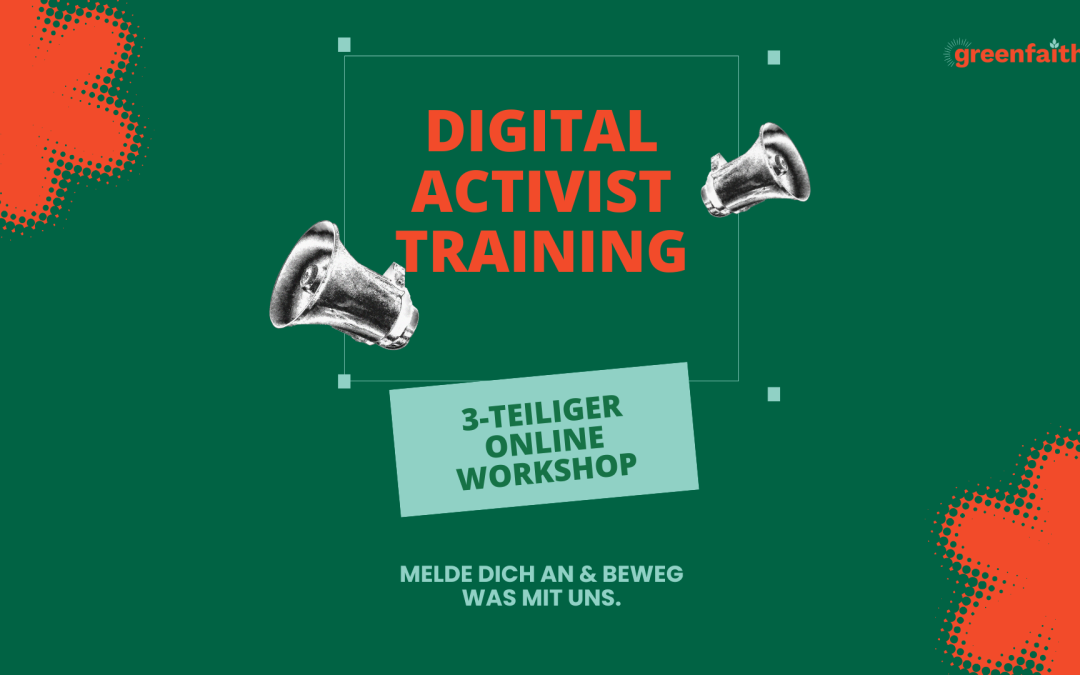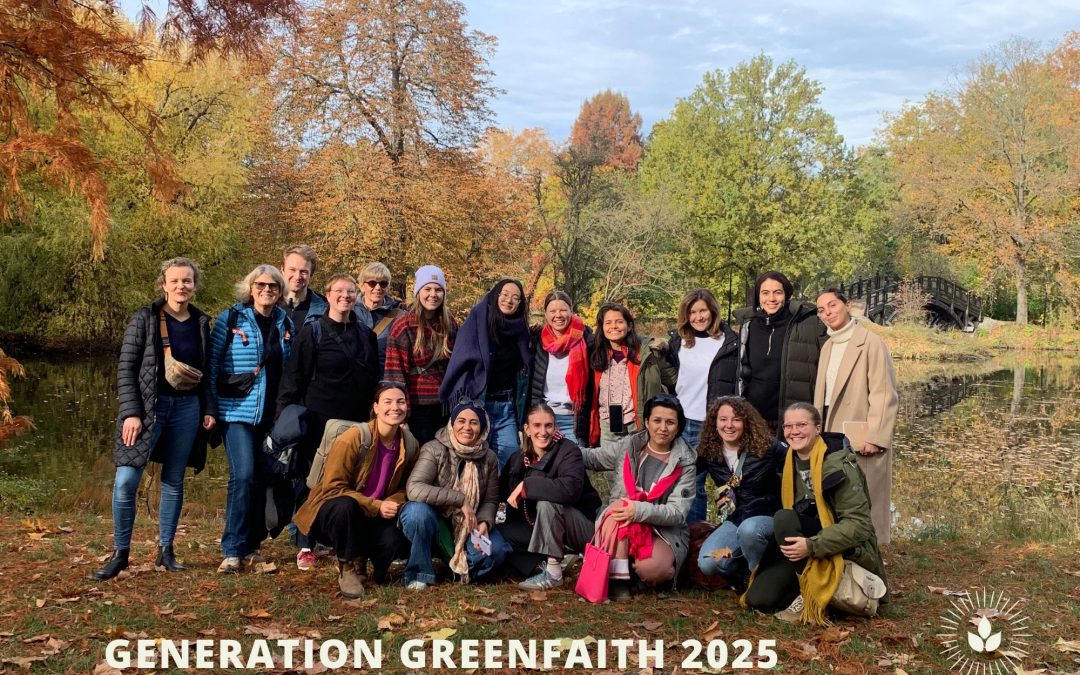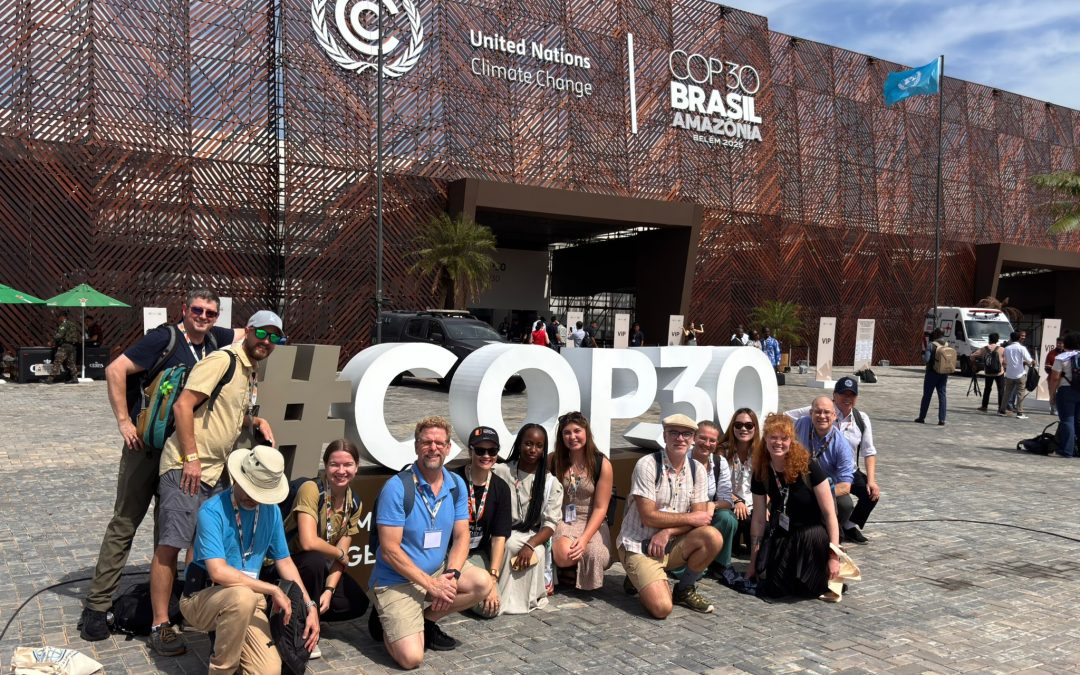In northern Minnesota, a Canadian fossil fuel pipeline company called Enbridge carries tar sands oil, one of the dirtiest forms of fuel, from Alberta, Canada to Lake Superior, WI. There, it is shipped through the Great Lakes and enters the global energy supply. Enbridge’s pipeline is corroded and old, leaking, and in danger of failing. Enbridge now wants to abandon the old pipeline and build a new one called Line 3 through pristine wetlands and across dozens of rivers. These wetlands are protected by treaty rights. Indigenous people are resisting the new construction, hoping that public pressure will force President Biden, to revoke the permits and #StopLine3.
Here, Rev. Amy Brooks Paradise, GreenFaith US Organizer, shares what she learned during her time spent with the Indigenous Anishinaabe community opposing Line 3.
Six weeks ago, I heard of the Treaty People Gathering for the first time. The Anishinaabe, the Indigenous communities for whom Northern Ontario, the plains of Saskatchewan south, the northeast corner of North Dakota, northern Minnesota, and Michigan has been home for 10,000 years, invited people of faith to gather together in northern Minnesota.
Their call: join with them to resist Enbridge’s Line 3, a tar sands oil pipeline that is being built across Indigenous sacred treaty lands where they hunt, fish, and harvest the wild rice that sustains their lives.
“It’s like an occupation,” Indigenous activist Winona LaDuke said. “Enbridge comes up here, and they’re shoving a pipe down our throat.” A pipeline the same size as Keystone XL, which the Biden administration blocked because of its climate change impacts.
And so we came — Hindu, Buddhist, Muslim, Christian, and Jewish. More than 350 of us from every corner of the country.
It was already over 90 degrees as we gathered early on June 7 to pray near the headwaters of the Mississippi, and temperatures would top 100 degrees in the days to come. We carried banners and signs, dressed in religious garb and sunscreen, ready to walk in the blazing sun: for water, for Mother Earth, for Life.
As I listened to the teachings of the tribal elders, many of them elderly women, I was moved by several things they shared. I want to share them now with you.
First, treaties are not optional agreements created out of sympathy for Native people. Treaties are part of our constitution. They are legal agreements our ancestors made with Indigenous ancestors, and we need to uphold our end of the agreement. Treaties protect land and water for all of us. It is time for us to come alongside Indigenous water protectors and recognize that we are all treaty people.
Second, I was deeply touched when Indigenous leaders reminded us that those of us who are “white” are not just white people. We come from a place and a people. We need to remember and tell our own stories. Many of us lost part of ourselves in coming here–our land, our family, our community, and our culture. If we can remember this, perhaps we can find common cause with Indigenous people who are struggling to maintain their communities, practices, and cultures. We are more alike than we realize.
Finally, that morning by the water, we were invited to hear history as it is told by the people who have cared for and inhabited this land long before European settlers arrived. Their story calls us to shift our perspective, to exercise humility. This is their story, not ours. We “discovered” nothing; we are not the center of this story at all. Earth, too, is a protagonist in this story. We must listen.
Friends, the power and the importance of this interfaith gathering cannot be underestimated. This is a critical moment in the history of the United States and of humanity around the world. We cannot live without clear air, clean water, and healthy food grown in clean soil. The resistance by the Indigenous people of northern Minnesota is a global struggle. It’s happening in African nations exploited for mining, In rainforests of Latin America and Indonesia cut down for industrial agriculture, and in coastal cities flooded by rising seas.
Our active work on campaigns to resist the planet’s destruction is essential. People of faith can and must reframe the conversation by clearly naming two things: first, that the Earth is sacred and second, that people have a moral responsibility to rise and protect the planet.
Look around you. This struggle is already happening in your community. Maybe there is a pipeline leak or coal ash pond near you. Maybe a drought has destroyed your ability to farm or a flood has leaked toxic waste into your water supply. Maybe you don’t have clean air to breathe. This kind of trouble is everywhere. More and more of us are organizing to fight back. We invite you to join us.
I grew up singing the song by Woody Guthrie that begins with the famous line “This land is your land, this land is my land.” It evoked in me a sense that we all have a right to be on the land. That there is room for everyone, regardless of our country of origin.
My innocent childhood understanding may not have accounted for a long history of brutal land acquisition and exploitation of Indigenous peoples, but its spirit was on target. We all, especially Indigenous communities, have a sacred bond with the land; a God-given right to clean air and water. Corporations shouldn’t be able to take that away from us. The only way to stop them is to join Indigenous communities to protect sacred land and water.




